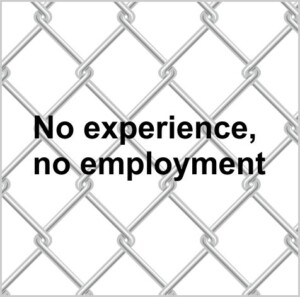A scientific article demonstrates the link between experience and employment. Focusing on the effect of vocational education and training work experience on labour market outcomes after higher education.
Maria-Esther Oswald-Egg and Ursula Renold have recently published in the February 2021 volume “Economics of Education Review” (Vol. 80). An article aiming at revealing the link between experience and employment.
 Their study analyses how work experience from vocational education and training (VET) affects labour market outcomes after higher education. To account for selection into VET, the authors use the regional enrolment rate as an instrument for upper-secondary VET. Results suggest that work experience gained during VET leads to significantly higher wages of 7% to 19%. One year after graduation from higher education (HE) and two months less search time for first employment. However, these positive effects do not persist: the effect is no longer robustly significant for wages, unemployment or employment position after five years.
Their study analyses how work experience from vocational education and training (VET) affects labour market outcomes after higher education. To account for selection into VET, the authors use the regional enrolment rate as an instrument for upper-secondary VET. Results suggest that work experience gained during VET leads to significantly higher wages of 7% to 19%. One year after graduation from higher education (HE) and two months less search time for first employment. However, these positive effects do not persist: the effect is no longer robustly significant for wages, unemployment or employment position after five years.
The effect operates through the human capital (specific and general), screening and signalling channels, not the social network channel. Their results suggest that upper-secondary VET is an equivalent pathway to academic education, not merely the second-best, for individuals planning on HE.
Switzerland as a case Study
The authors take Switzerland as a case study and find that, one year after graduation, HE graduates with VET work experience have significantly higher wages of 7% to 19%. They need significantly less time (about two months) to find their first job. However, they find no significant effect on the likelihood of their doing an internship after graduation. Although these positive effects from work experience are very robust to the inclusion of control variables, they diminish over time. Five years after graduation the estimated coefficients for wages, unemployment and employment position remain positive, but are no longer robustly significant.
As for the channel through which VET work experience operates, they find that the benefits stem from employers. Employers knowing the worker’s productivity level (screening), an increase in human capital (both general and specific) and employers’ receiving a signal of higher productivity. Their robustness checks confirm that they are measuring work experience, that they have representative results for HE graduates, and that their findings do not suffer from selection bias.
Read this high interresstig scientific articel: https://www.sciencedirect.com/science/article/pii/S0272775720305513
